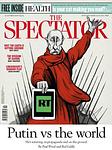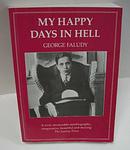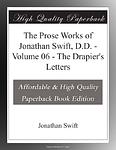The Greatest "History, Satire" Books of All Time
Click to learn how this list is calculated.
This list represents a comprehensive and trusted collection of the greatest books. Developed through a specialized algorithm, it brings together 300 'best of' book lists to form a definitive guide to the world's most acclaimed books. For those interested in how these books are chosen, additional details can be found on the rankings page.
Genres
The category of "History" in books refers to the study and interpretation of past events, societies, and cultures. It encompasses a wide range of topics, including political, social, economic, and cultural developments, as well as the lives of individuals and groups who have shaped the course of history. History books can be written from various perspectives and may focus on specific time periods, regions, or themes. They aim to provide readers with a deeper understanding of the past and its impact on the present.
Satire is a genre of literature that uses humor, irony, and exaggeration to criticize and ridicule human vices, follies, and shortcomings. It is a form of social commentary that aims to expose the flaws and absurdities of society, politics, and culture. Satirical books often employ sarcasm, wit, and parody to challenge the status quo and provoke thought and reflection in readers. Satire can be both entertaining and thought-provoking, and it has been used throughout history as a powerful tool for social and political critique.
Countries
Date Range
Reading Statistics
Click the button below to see how many of these books you've read!
Download
If you're interested in downloading this list as a CSV file for use in a spreadsheet application, you can easily do so by clicking the button below. Please note that to ensure a manageable file size and faster download, the CSV will include details for only the first 500 books.
Download-
1. Max Havelaar by Multatuli
"Max Havelaar" is a novel centered around a Dutch civil servant who is stationed in the Dutch East Indies (now Indonesia) during the mid-19th century. The protagonist, trying to battle the corruption and exploitation of the local people by Dutch colonial rulers, becomes disillusioned with the system. The novel provides a scathing critique of the colonial regime's treatment of the indigenous people, highlighting their suffering and exploitation. The author uses various narrative techniques and perspectives, making it a significant work in Dutch literature.
-
2. 1066 And All That by W.C. Sellar
The book is a satirical take on the history of England, presenting a whimsical recounting of events from Roman times through to the end of World War I, focusing particularly on the year 1066, known for the Battle of Hastings. It parodies the way history is taught, with an emphasis on memorable events, rulers, and dates, often getting facts humorously wrong or presenting them with a comical twist. The work is characterized by its irreverent tone, wordplay, and deliberate inaccuracies, lampooning both historical figures and the supposed objectivity of historians, ultimately suggesting that what is remembered from history is often a muddle of 'what you can remember' and 'what you cannot help remembering'.
-
3. The Spectator by Joseph Addison
"The Spectator" is a collection of daily publications from the early 18th century that offers a rich commentary on the social, political, and cultural life of England during that period. Through a series of essays and fictional correspondences, the work provides a platform for discussing various topics such as manners, literature, and public behavior. The central figure, a fictional spectator, observes and reports on the world around him, offering insights and critiques that aim to educate and entertain the readers while promoting moral virtues and enlightened thinking. The publication played a significant role in shaping the English essay as a literary form and had a lasting impact on the social discourse of the time.
-
4. My Happy Days In Hell by György Faludy
The book is an autobiographical account of a Hungarian poet's life during the mid-20th century, chronicling his experiences from his carefree youth through the rise of fascism and his subsequent imprisonment in a brutal labor camp. It is a tale of intellectual passion, political upheaval, and the resilience of the human spirit in the face of totalitarianism. The narrative captures the author's journey through a Europe ravaged by war and political strife, his encounters with notable literary figures, and his unyielding commitment to his beliefs and to poetry, even as he endures the hardships and absurdities of a communist regime.
-
5. The Prose Works Of Jonathan Swift by Jonathan Swift
This collection of writings by a prominent 18th-century satirist and essayist offers a diverse range of his non-poetic works, including political pamphlets, essays, and correspondence. The compilation showcases the author's sharp wit, profound disdain for contemporary society and politics, and his exceptional ability to use satire as a means of social commentary. Through his prose, the author addresses issues such as the corruption of the British government, the oppression of Ireland, and the follies of human nature, all while displaying his mastery of language and rhetorical skill. This body of work not only provides insight into the author's mind but also reflects the complexities and concerns of the Enlightenment period.
-
6. The Lisbon Earthquake by Voltaire
The book in question is a philosophical exploration of the problem of evil, prompted by the catastrophic 1755 earthquake that devastated Lisbon. Through a series of poetic verses, the author grapples with the theological and moral questions raised by such natural disasters, challenging the optimistic belief that this is the best of all possible worlds and questioning the justice of a benevolent deity allowing such suffering. The work is a profound meditation on human suffering, divine providence, and the limits of philosophical and religious consolation in the face of overwhelming disaster.
-
7. Visions by Francisco de Quevedo
"Visions" is a satirical work that delves into the moral and social decay of Spanish society during the Baroque period. Through a series of allegorical and fantastical visions, the author exposes the vices and follies of various social classes and professions. With sharp wit and a critical eye, the text presents a series of dreamlike scenarios where the dead reveal the hypocrisy, corruption, and pretensions of the living. The work is known for its dark humor, rich language, and the use of grotesque imagery to critique the moral shortcomings of humanity, reflecting the author's disillusionment with the world around him.
Reading Statistics
Click the button below to see how many of these books you've read!
Download
If you're interested in downloading this list as a CSV file for use in a spreadsheet application, you can easily do so by clicking the button below. Please note that to ensure a manageable file size and faster download, the CSV will include details for only the first 500 books.
Download





